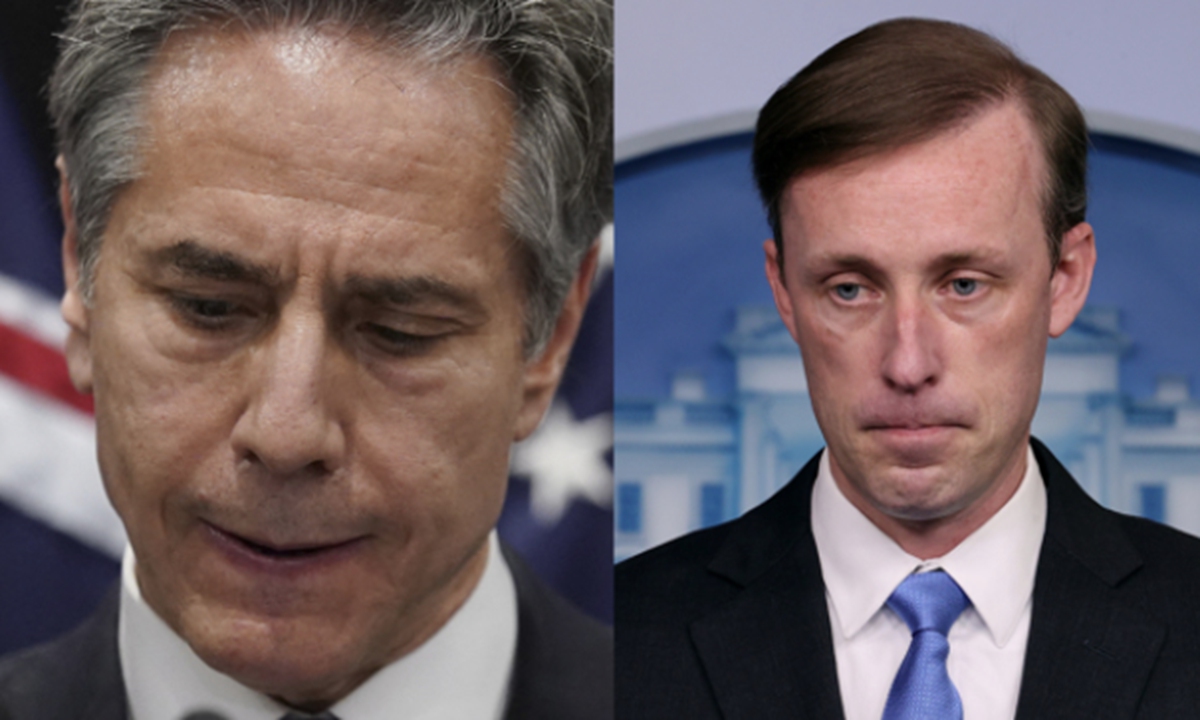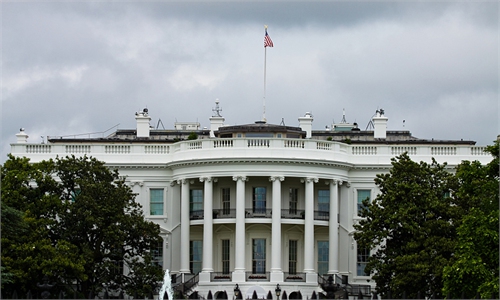Biden administration officials intensively visit ‘Indo-Pacific’ region; US wants to ensure allies continuously serve its strategic interests, says expert

US Secretary of State Antony Blinken, US National Security Advisor Jake Sullivan
Officials from the Biden administration, including Jake Sullivan and Antony Blinken, are intensively visiting the so-called Indo-Pacific region in the final days of Biden's term. A Chinese expert said on Sunday that these visits indicate that the US is concerned about whether its allies can continuously and relentlessly serve its strategic interests in the context of great power competition, and the visits could limit Trump administration's flexibility in managing foreign policy.
US National Security Advisor Jake Sullivan is set to travel to New Delhi, India on Sunday and Monday for a meeting with Indian National Security Advisor Ajit Doval that will span a range of issues across the breadth of the US-India partnership - from space, defense and strategic technology cooperation to shared security priorities in the Indo-Pacific and beyond, according to the White House.
Strengthening ties with India has been a "real foreign policy priority and area of legacy achievement for the Biden administration," a senior administration official said on condition of anonymity in a briefing to reporters Friday, according to VOA.
During his visit, Sullivan will meet with Indian External Affairs Minister S Jaishankar and is expected to call on Prime Minister Narendra Modi. Sullivan is set to discuss a range of issues, including civil nuclear partnership, China's overcapacity in the semiconductor and biopharma supply chains, strategic technology cooperation and other shared security priorities, a second administration official said.
The Biden administration's foreign policy is characterized by a focus on strengthening alliances and creating a broader and more robust network of partners, Li Haidong, a professor at China Foreign Affairs University, told the Global Times on Sunday. This approach has left the Trump administration with a significant diplomatic legacy to contend with, complicating its efforts to completely reject or overturn Biden's policies.
As Biden approaches the end of his term, the intensive visits by officials of his administration to allied nations may limit Trump's flexibility and freedom in managing foreign policy related to these alliances.
Meanwhile, US Secretary of State Antony Blinken is set to travel to South Korea, Japan and France from Saturday to Thursday. Blinken will meet with senior South Korean government officials and will discuss how they "can strengthen key efforts to promote a free, open and prosperous Indo-Pacific, as well as trilateral efforts with Japan," the US State Department said in a statement.
In Tokyo, Blinken will meet with senior Japanese government officials to review the tremendous progress the US-Japan alliance has made over the past few years. Blinken will reaffirm the importance of the alliance in addressing a range of bilateral, regional, and global issues and continue to build on the momentum of US-Japan-ROK trilateral cooperation.
The US State Department has approved a potential sale of advanced medium-range air-to-air missiles and related equipment to Japan for an estimated $3.64 billion, the Pentagon said on Thursday.
In France, Blinken will discuss challenges in the Middle East and Europe, the release said, amid ongoing efforts to secure a cease-fire in Gaza.
While countries in the region are committed to coordinating and cooperating amidst instability, officials from the US government still insist on visiting the region. This indicates that the US is not concerned about the internal stability of its allies; rather, it is focused on whether these allies can be maximally integrated into the US strategic interests in the context of great power competition, Li said.
"In other words, they are concerned about whether their allies can continuously and relentlessly serve US strategic interests. For the US, this series of visits undoubtedly reflects its own strategic needs. Allies that align with US strategic interests are those the US seeks to cultivate, while those that do not align are likely to be subjected to pressure," Li warned.

